Background
Cecilia Vicuna was born in Santiago, Chile on July 22, 1948. She is the daughter of Jorge Vicuna Lagarrique, an attorney, and Norma Ramirez Arenas, a tour guide.

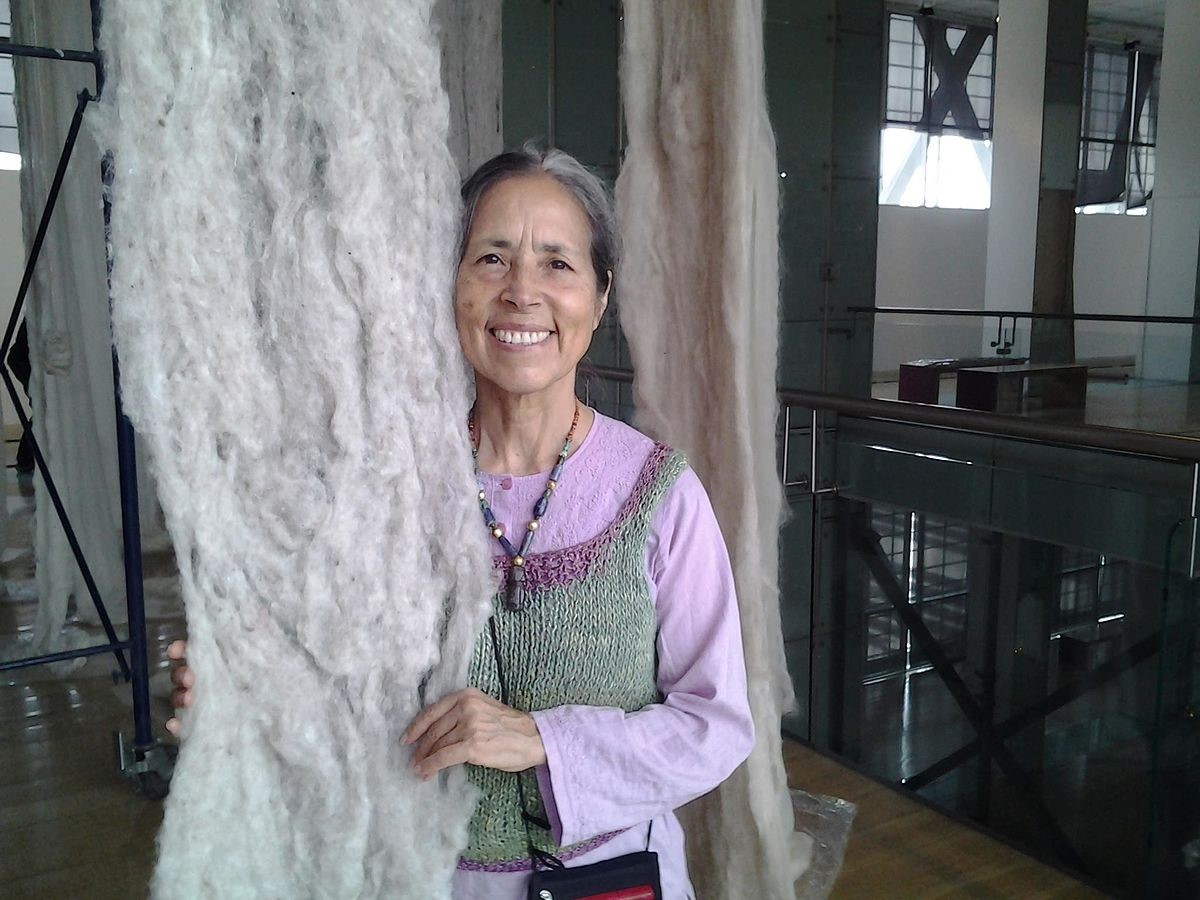

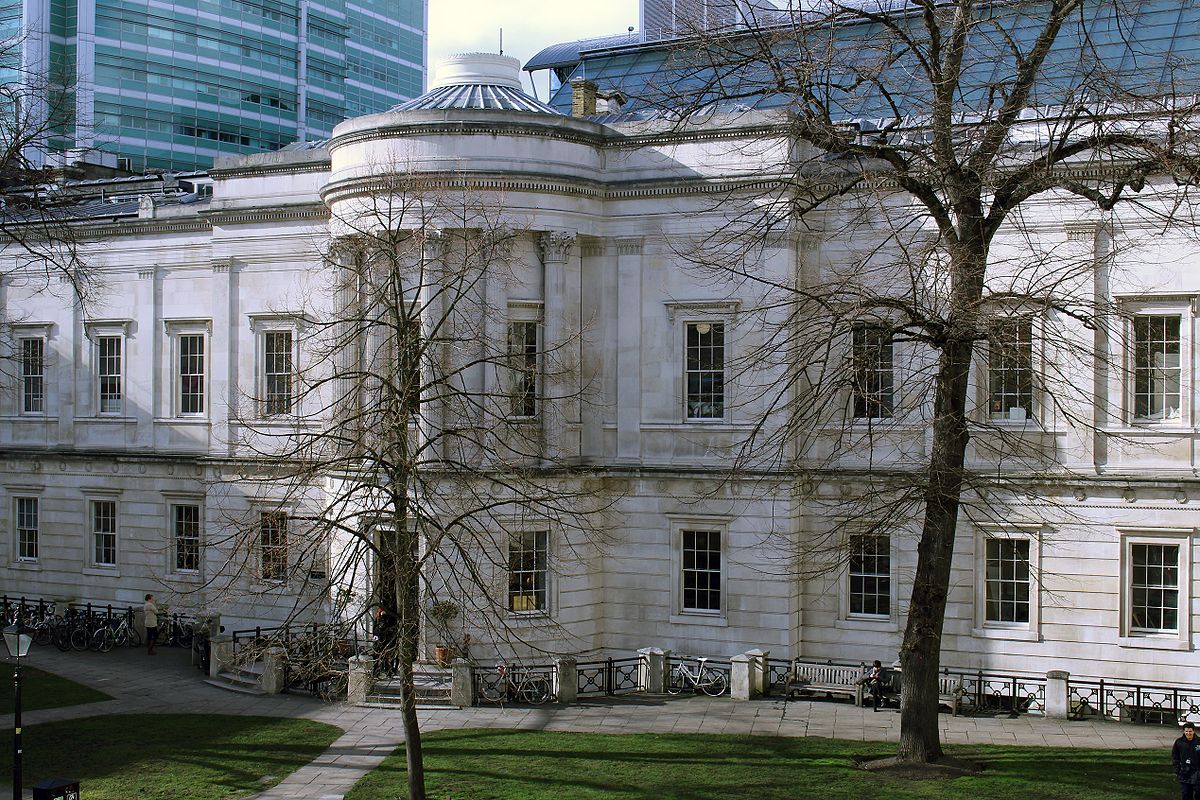
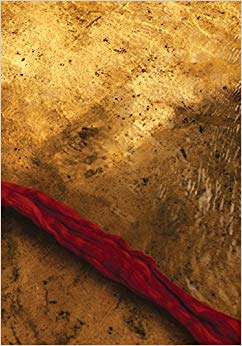
(From the 1970s to the present, Chilean artist, poet and f...)
From the 1970s to the present, Chilean artist, poet and filmmaker Cecilia Vicuas (b. 1948) work has used red thread to visually and poetically engage with rituals from Aboriginal Australia, South Africa, Paleolithic Europe and pre-Columbian America. Vicuas performances, site-specific installations, paintings and drawings relate to the symbolic function of textile and language in terms of femininity, maternity and the support and continuation of life. Published on the occasion of Vicuas installation in Athens for dOCUMENTA (14), Read Thread tells the story of the sanguine thread in Vicuas worka kind of weaving-as-writingand conveys the tension of ecological disaster and reparation as well as a bodily sense of the cosmic scale of landscape, history and time. Alongside historical and recent documentation of Vicuas large-scale installations, the softcover publication extensively illustrates her drawings, poetic texts and narratives relating the works to their political and historical context. Essays by dOCUMENTA (14) curator Dieter Roelstraete and art historian Jos de Nordenflycht Concha complete the book.
http://www.amazon.com/gp/product/3956793226/?tag=2022091-20
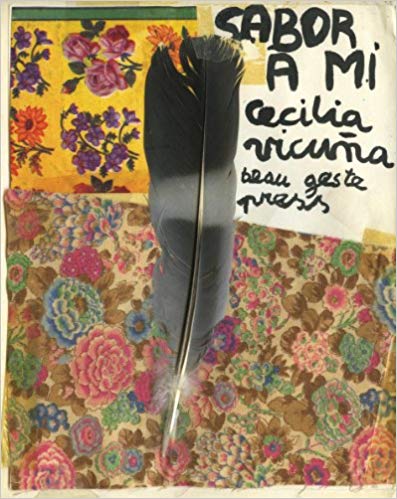
(Poetry. Latino/Latina Studies. Art. First published in 19...)
Poetry. Latino/Latina Studies. Art. First published in 1973, two months after the military coup in Chile, Cecilia Vicuña's SABORAMI is a document of the times and the way in which history can change art. It is filled with the urgent hope that art, too, can change history. Put together when Vicuña was just twenty-five years old, the poems, paintings, and objects of SABORAMI enact a complex and multidimensional conversation. The meanings of the works (which were created over a seven year period) shifted radically after the events of September 11, 1973. Their meanings continue to shift and resonate in light of political events today. This recreation of the original SABORAMI is published with a new afterword Vicuña wrote especially for this edition.
http://www.amazon.com/gp/product/1930068506/?tag=2022091-20
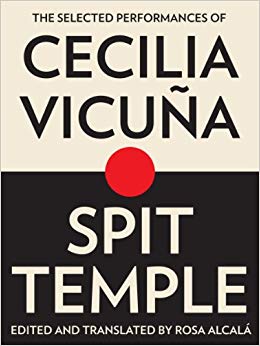
(Poetry/Performance. Latino/Latina Studies. Art. Edited by...)
Poetry/Performance. Latino/Latina Studies. Art. Edited by Rosa Alcalá. SPIT TEMPLE collects texts and transcriptions of Vicuña's uncategorizable improvised performances, which combine singing, movement, chants, and stories. Also included are a critical introduction by Rosa Alcalá, a poetic memoir by Vicuña (translated by Alcalá) addressing her life in performance, and a series of response pieces from contemporary writers including Juliana Spahr, Rodrigo Toscano, and Maria Damon. "Vicuña's work, at its very essense, is 'a way of remembering'—as if exile and recall joined to unravel an 'autobiography in debris;' as one personal story within a larger narative."—Roberto Tejada
http://www.amazon.com/gp/product/1937027031/?tag=2022091-20
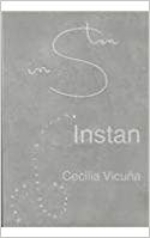
(Poetry. Art. Includes drawings by the writer. Cecilia Vic...)
Poetry. Art. Includes drawings by the writer. Cecilia Vicuna's INSTAN is composed in handwrittenlines that move across the page with the instantaneousfeeling of marks in a private journal, the booktransmits the energy of her performative works, wherethread and poetic lines play at being one. The word/drawings are certain and fragile. In theirpower to preserve and transform, they offer hope inart and daily speech for radical change. "Cecilia Vicuna, born and raised in Santiago de Chile, has been an exile since the early 1970s. Vicuna has never accepted the boundaries between cultural disciplines, creating a terrain of her own ..." Lucy Lippard, "The Precarious" The Art and Poetry of Cecilia Vicuna."
http://www.amazon.com/gp/product/0932716504/?tag=2022091-20
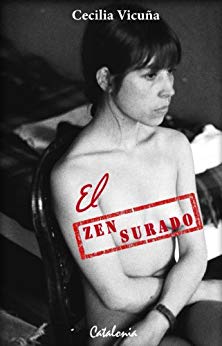
("La historia de El Zen Surado comienza con la historia de...)
"La historia de El Zen Surado comienza con la historia de un manuscrito desaparecido en Chile en 1973. En 1972, una joven Cecilia Vicuña firmó un contrato con Ediciones Universitarias para publicar 3000 ejemplares de un poemario titulado Sabor a mí. Pero después de firmar se fue a Londres y el libro nunca salió, la última huella fue borrada por la ola de violencia que estalló con el golpe de Estado. La voz poética de estos poemas tempranos es franca y honesta, vacilando entre desgarradoramente seria, briosamente juguetona y astutamente burlona. Los cien poemas captan las múltiples dimensiones de una poeta totalmente confiada en la transformación radical de la sociedad y un futuro sin sexismo, sin racismo, sin desigualdad y con justicia —y placer— para todos.". Juliet Lynd
http://www.amazon.com/gp/product/B00H7FWTHI/?tag=2022091-20
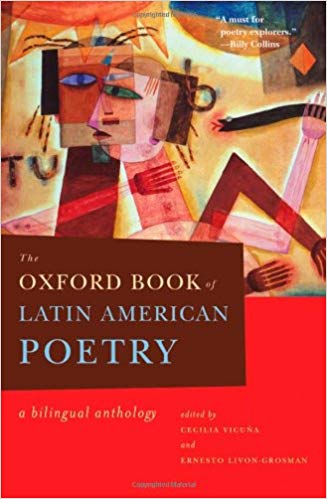
(Here is the first anthology to present a full range of mu...)
Here is the first anthology to present a full range of multilingual poetries from Latin America, covering over 500 years of a poetic tradition as varied, robust, and vividly imaginative as any in the world. Editors Cecilia Vicuña and Ernesto Livon-Grosman present a fresh and expansive selection of Latin American poetry, from the indigenous responses to the European conquest, through early feminist poetry of the 19th century, the early 20th century "Modernismo" and "Vanguardia" movements, later revolutionary and liberation poetry of the 1960s, right up to the experimental, visual and oral poetries being written and performed today. Here readers will find several types of poetry typically overlooked in major anthologies, such as works written or chanted in their native languages, the vibrant mestizo (mixed) creations derived from the rich matrix of spoken language in Latin America, and even the mysterious verses written in made-up languages. In addition to the giants of Latin American poetry, such as César Vallejo, Vicente Huidobro, Pablo Neruda, Octavio Paz, Haroldo and Augusto de Campos, and Gabriela Mistral, the editors have included a selection of vital but lesser known poets such as Pablo de Rohka, Blanca Varela, and Cecilia Meireles, as well as previously untranslated works by Simó n Rodríguez, Bartolomé Hidalgo, Oliverio Girondo, Rosa Araneda, and many others. In all, the anthology presents more than 120 poets, many in new translations--by Jerome Rothenberg, W.S. Merwin, and Forrest Gander, and others--specially commissioned for this anthology, and each accompanied by a biographical note. The book features both English and original language versions of the poems, a full bibliography, and an introduction by the editors. Sure to stand as the definitive anthology for decades to come, The Oxford Book of Latin American Poetry remaps the territory, offering new ways of looking at a poetry as diverse and complex as Latin America itself.
http://www.amazon.com/gp/product/0195124545/?tag=2022091-20
Cecilia Vicuna was born in Santiago, Chile on July 22, 1948. She is the daughter of Jorge Vicuna Lagarrique, an attorney, and Norma Ramirez Arenas, a tour guide.
Vicuna attended University of Chile and obtained a Master of Fine Arts degree in 1971. She also had post-graduate studies at the Slade School of Fine Arts at University College in London, for a year from 1972.
Vicuna worked as a freelance poet, artist, and performance artist. She has conducted workshops and seminars at institutions including Universidad Libre Arke, New York Public Schools, City University of New York, St. Mark’s Poetry Project, University of California, Berkeley, Poet’s House, State University of New York, Purchase and Jack Kerouac School of Disembodied Poetics, as well as at Naropa Institute.
She is a founding member of Artists for Democracy and organized the Arts Festival for Democracy in Chile at the Royal College of Art in 1974.
Vicuña has written and published more than a dozen books, of her visual art installations and poetry books, most of which have been translated into several languages.
Vicuna’s best-known work for readers of English is the 1992 collection Unravelling Words and the Weaving of Water, which contains translated portions of three of Vicuna’s previous books, Precario/Precarious from 1983, PALABRARmas from 1984, and La Wik’una from 1990. The poet has also made numerous contributions of both poetry and essays to periodicals and anthologies.
Characteristic of Vicuña's architectural work is her use of materials that are often fragile, worn by the elements and/or biodegradable: the return to the environment. She tells about her work that it’s a way of "hearing an ancient silence waiting to be heard." In 1966, she began creating sculptural interventions called precarios, combining ritual and assemblage and typically throw-away materials such as yarn, sticks, feathers, leaves, stones and bones. During 1972-1973, she created over 400 precarios as an act of political resistance in response to General Pinochet’s military coup of President Salvador Allende. Vicuña made a great amount of paintings in the late 1960s and early 1970s.
In 2017, her work was included in both the Athens and the Kassel sites of documenta 14.
In 2017, as well, the Contemporary Arts Center New Orleans originated a traveling exhibition entitled Cecilia Vicuña: About To Happen.
Vicuna’s works were exhibited in a great number of museums, such as the Museo Nacional de Bellas Artes de Santiago, the Institute of Contemporary Arts (ICA), Art in General, New York City, the Whitechapel Art Gallery in London, the Whitney Museum of American Art, the University of California, Berkeley Art Museum, and MoMA, the Museum of Modern Art in New York.
She won several awards for her activity. She received Line II Award for Precario/Precarious in 1983. She also won Human Rights Exile Award for Fund for Free Expression in 1985. Vicuna was named a Poet in Residence at the Bellagio Study Center in Italy by the Rockefeller Foundation six years later. She received Arts International Award for Lila Wallace-Reader’s Digest Fund in 1992. Vicuna won Lee Krasner-Jackson Pollock Award in 1995-1996. She won Fund for Poetry Award in 1995-1996.
("La historia de El Zen Surado comienza con la historia de...)
(From the 1970s to the present, Chilean artist, poet and f...)
(Poetry/Performance. Latino/Latina Studies. Art. Edited by...)
(Poetry. Latino/Latina Studies. Art. First published in 19...)
(Poetry. Art. Includes drawings by the writer. Cecilia Vic...)
(Here is the first anthology to present a full range of mu...)
During her life, Vicuña largely focused on political activism, demonstrating in peaceful protests against fascism and human rights violations in Chile, as well as in other countries.
Vicuna is a feminist. The term eco-feminism is an explanation of her practice that has long linked gender injustice with ecological destruction.
Quotations:
“By age nine, I knew I was a writer. It was the need to write a dream that got me started. Later, the signs on the page became a necessary reflection of all other aspects of life.”
“I lived at the foot of the Andes Mountains, in Santiago, Chile, a place where many ancient cultures met with the European invaders. My family spoke a brand of Spanish entirely transformed by the music of the old languages which had been erased. As I grew older, my ear for those particular intonations became my guide. Through listening, I found a way of discovering new and ancient thought forms.”
“Writing is a form of seeing and listening at once.”
Vicuna is a member of American PEN Club.
Vicuna married Cesar Paternosto, an artist and author, on June 12, 1981.
